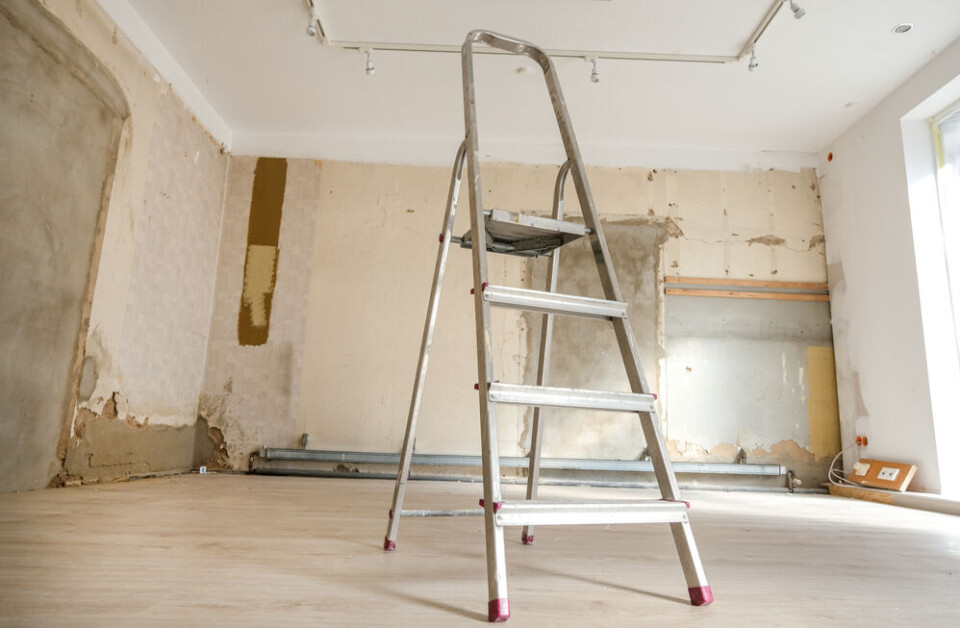-
How to check whether you will be fined for a speeding offence in France
Fines can be sent anytime after an incident
-
How to define your style and make a French property a home
'There is always a balance between the inhabitant and the provenance of the building'
-
How to help wounded wildlife and strays in France
Is illegal to treat wild animals at home unless you have authorisation
Which renovation works can exempt you from property tax in France?
You can receive a partial or full rebate on taxe foncière payments for three years

Many homeowners in France will be receiving their taxe foncière (property owners’ tax) bills this month.
The tax sees a 7.1% rise this year with some communes levying additional increases.
In 2022, the average amount of the taxe foncière was €111/month for those living in one of France’s largest cities, with the 2023 amount set to be even higher.
However if you undertake certain eco-friendly renovation works in your home you could be temporarily exempt from the requirement to pay taxe foncière.
Certain communes provide a partial (50%) or total rebate from the tax for three years for these works, starting in the year in which you paid for them.
What are the rules?
This exemption is only provided if work is undertaken on homes built before January 1, 1989 (a different temporary exemption also exists for new-build homes which have been built to high environmental standards).
The application should relate to work paid for this year (2023) if you want the exemption to start from 2024’s tax. It can also relate to work that was paid for during a three-year period (eg. in 2021-2023).
The work undertaken should usually have cost at least €10,000, excluding labour costs, or €15,000 if spread over more than one year.
It has to belong to one or more eco-friendly categories, including:
- Insulation work involving the purchase of thermal insulation materials or heating control equipment, including windows
- Purchase of equipment for heating the home or hot water, using renewable energy sources, such as heat pumps, solar thermal (or hybrid – thermal and photovoltaic) panels, or wood-burning or other biomass boilers
- Connection to an urban heating network powered by renewable energies
- Electric car charging points
A full list of the specifics of which types of renovations are applicable can be found in annex IV of the French Tax Code.
When choosing to renovate your property with one of the improvements above, you should check with the service or material provider that the plans will apply for the property tax exemption.
You must send a copy of all the expenses accrued during the works to your local tax office, alongside a declaration of the works, before January 1 for the exemption to apply for the following year (or three years).
Read more: Taxe foncière explainer: Who pays and the exemptions
Where does the exemption apply?
This is only available in communes in France where town councils have voted to allow property tax exemptions for the works mentioned above. This needs to be voted for (or reconfirmed) by October 1 each year, to apply for the following year.
There is no exhaustive list of communes where the exemption applies, but they are all over France, including, for example, Massy (Essonne), Roubaix (Nord), Pessac (Gironde), Villeneuve-Tolosane (Haute-Garonne), and Lambesc (Bouches-du-Rhône).
Note that in some communes the exoneration may be applicable for certain types of work but not others, so it is important to research locally whether or not your commune has any initiatives in place.
You can ask your local tax office (centre des împots) or mairie if the exemptions apply in your commune.
Do not forget to declare major works on property
As a reminder, certain major renovation works (especially anything which involves demolition or new construction and enlargement) and additions of important new elements of comfort and amenities to a home, that could affect its value for the local property tax, should be declared within 90 days of completion, using the Formulaire 6704.
If in doubt as to whether work being undertaken is applicable you can contact the tax office.
Many communes are now using AI (artificial intelligence) to capture undeclared property extensions and improvements.
Related articles:
Why French property tax bills, sent soon, will show big increases
Impôt, redevance, taxe: understand the subtle differences in French
























